The Institut Ramon Llull presents CATALONIA IN VENICE – AIR/ARIA/AIRE, a Collateral Event of the Biennale Architettura 2021 and an exhibition curated by architect Olga Subirós. The project reflects upon the central theme of the Biennale, ‘How will we live together?’, with an investigation into air as a common asset upon which our survival depends. Under the name Aire, the exhibition highlights the role of architecture and urbanism within the context of two interconnected global crises: the climate emergency and the public health crisis. This curatorial project aims to seek solutions to these interconnected crises through an investigation into air pollution and how it directly affects people. The exhibition offers an immersion into the radical experience of air contamination through a large, multisensory installation.
CATALONIA IN VENICE- AIR / ARIA / AIRE is based on the study of the city through the application of digital technologies to analyse big data, viewed as an invaluable tool for empowering citizens and for enabling architects to design more sustainable, healthier, fairer cities. The exhibition focuses on the analysis of big data to benefit the public and identifies actions needed to rethink urban design and the need for access to open data. Cities, as prolific producers of data, must be able to protect the sovereignty of this public and private data, so that it works for the common good. The project proposes a revision of the concept of ‘smart cities’ in which the use of technology is not the solution, but rather a tool to constantly renovate the social pact.
It is particularly relevant within the context of the COVID-19 health crisis. Numerous studies have pointed to air pollution as a contributing factor towards the higher rate of COVID-19 cases in urban areas. This makes the right to breathe clean air, on which this proposal is based, all the more important. Epidemics have always been an opportunity to accelerate the introduction of urban planning measures aimed at improving health in cities. This new public health crisis, along with critical levels of air pollution and the climate emergency, emphasises the need to adopt sustainable, healthy urban planning measures supported by an interdisciplinary, collaborative, participative model that incorporates data.
300.000 Km/s, an architects’ studio specialising in the analysis of urban data for new urban challenges, will present the results of a project to create new cartographies of the city of Barcelona and of Catalonia, based on an examination of architectural, urbanistic, atmospheric and health data. A fundamental aspect of 300.000 Km/s’s investigation is the active participation of experts from Catalonia’s scientific community and public sector. The cartographies were created by 300.000 Km/s using a vast range of information, from European Space Agency (ESA) data to numerical models established by various public and private research groups in Catalonia. Examples of the latter include CALIOPE-Urban, an air pollution simulation project carried out by the Barcelona Supercomputing Centre (BSC); the company Lobelia Earth’s predictive model; data from the Government of Catalonia’s network of weather stations; and studies on health impact from the ISGlobal institute and from Barcelona City Council’s Public Health Agency.
Olga Subirós, who also designed the architecture of the exhibition space, offers a large-format, immersive experience that brings visitors closer to three aspects of air pollution: its materiality, its apparent invisibility, and its impact on our cities. A large audiovisual installation presents the vulnerabilities, impacts and opportunities revealed by 300.000 Km/s’s investigation that set the guidelines for sustainable, healthy urban planning. The installation takes on another, particularly sensory dimension thanks to the participation of singer and composer Maria Arnal, who fills the exhibition space with her own, never-before-heard aria.
Go to section 12 measures which are 12 cartographies resulting from the research.
Go to actions for further information on the cartography of vulnerabilities and opportunities of the research, workshops, podcasts, etc.
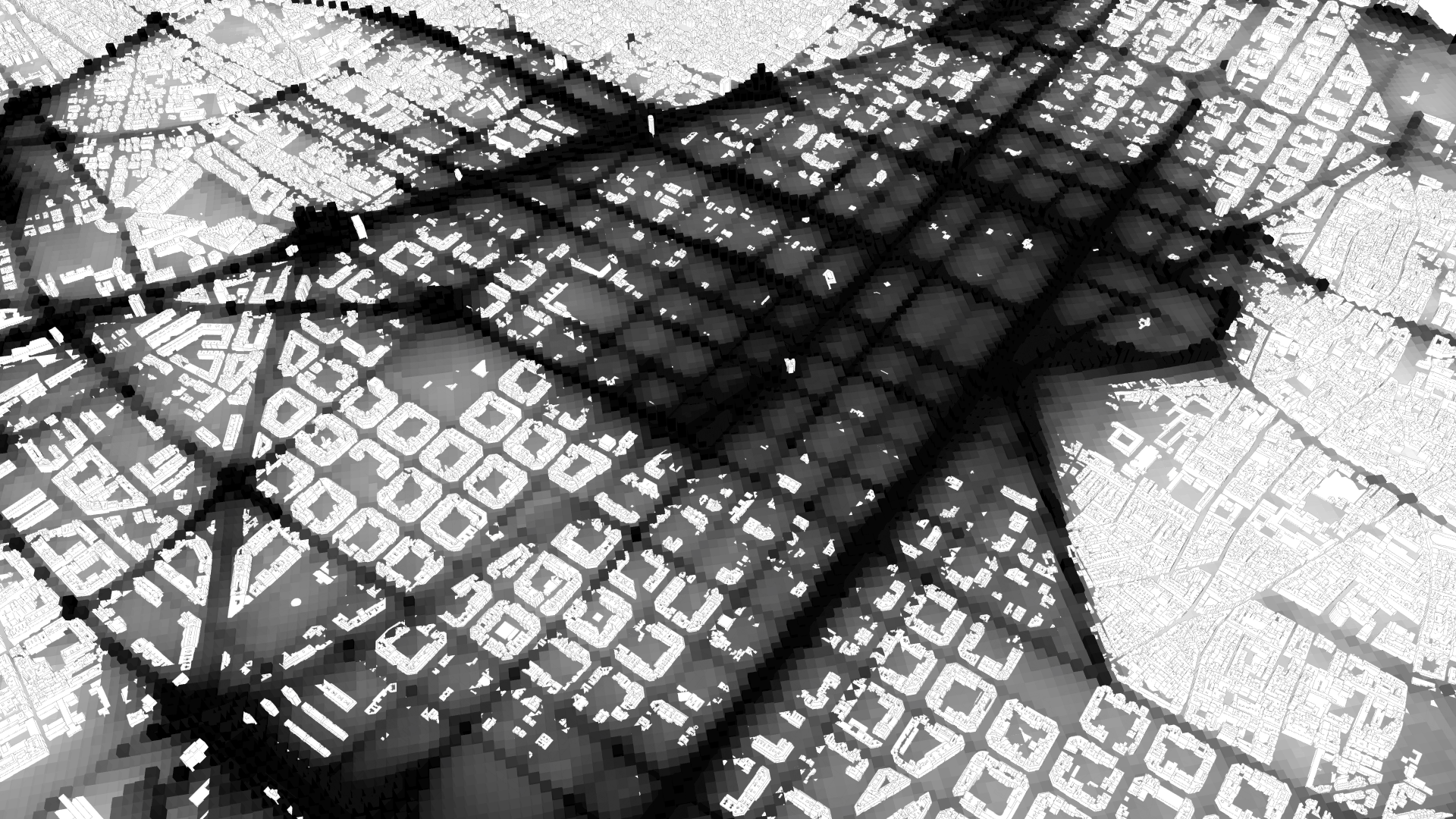
Barcelona redrawn by air pollution, 2020. ©300.000Km/s
Data Source: CALIOPE-Urban (BSC). NO2 episode at 8:00pm, 11 November 2017
Olga Subirós is an architect and curator of exhibition projects that provide an integrative approach to twenty-first century culture and the far-reaching transformations of the digital era. Alongside José Luis de Vicente, she was the curator of Big Bang Data, an exhibition on the datafication of the world presented in venues including the Singapore ArtScience Museum and the MIT Museum, the contents of which were adapted and extended for each centre. In 2016, Olga Subirós won the international competition for the Data Square exhibition at the EPFL-ArtLab in Lausanne. She also designed the exhibition on chef Ferran Adrià’s creative process and the El Bulli restaurant held at Somerset House in London, Boston Science Museum, and Fundación Telefónica in Madrid. She is also behind the staging of the exhibition ‘Are you ready for television?’, curated by Chus Martínez at the MACBA, and of over a dozen exhibition projects at the CCCB. Olga Subirós is a lecturer on the Data and Design master’s course at Escola Elisava-Universitat Pompeu Fabra.
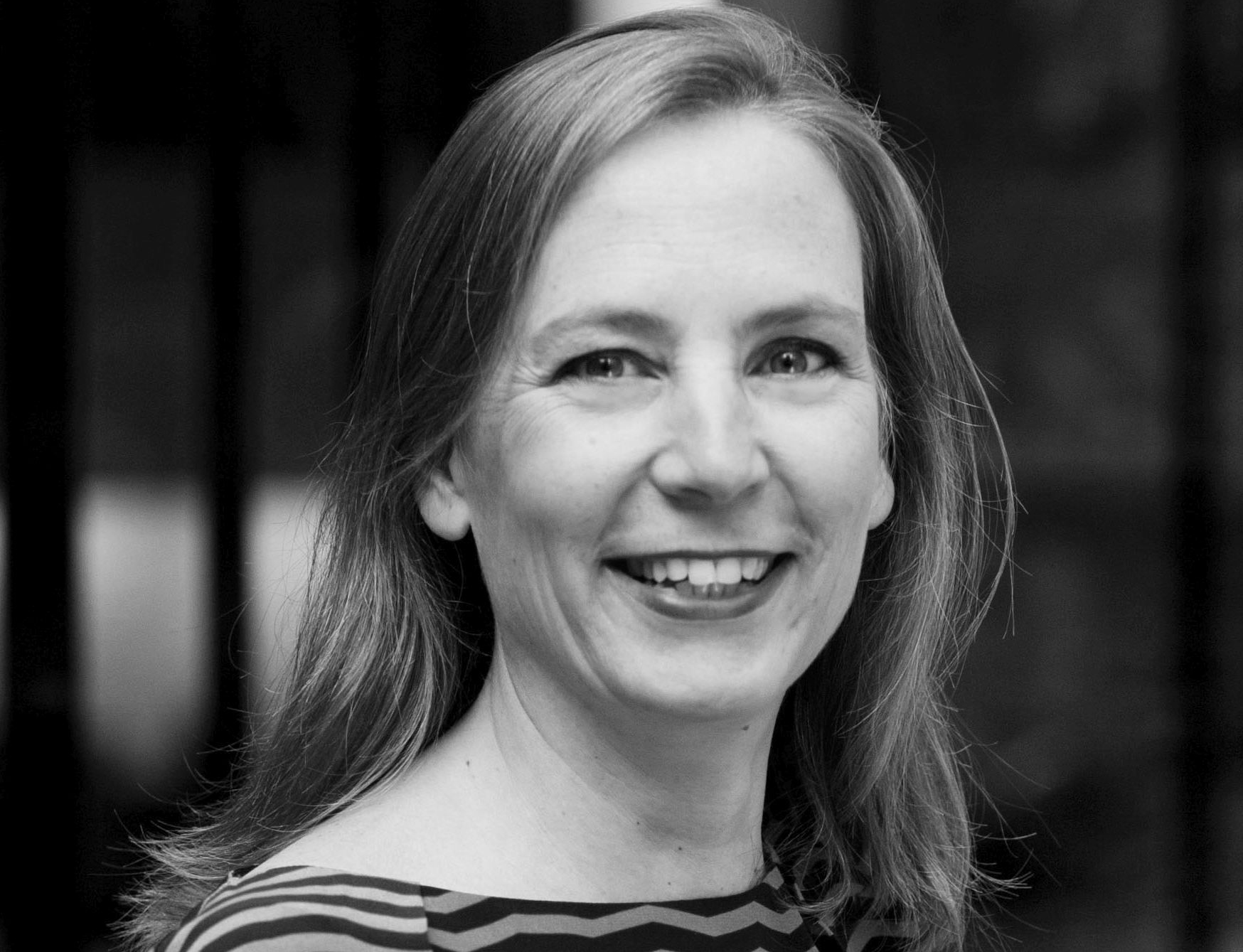
Olga Subirós, architect and curator. ©Gunnar Knechtel
300.000 Km/s is a pioneering urbanism studio in macrodata-based strategic planning. Its installations combine the analysis and the visualisation of data on cities to improve their inhabitants’ quality of life. This studio has put exhibitions on at the Chicago Architecture Biennial (2019), Madrid’s Casa Encendida (2017), the Museum of Contemporary Art in Chicago (2014) and the CCCB (2014). Founded by Mar Santamaría and Pablo Martínez, 300.000 Km/s has been awarded the Manuel Solà-Morales Catalonia Urbanism Prize 2020, the CSCAE National Urbanism Prize in 2019 and the S + T + ARTS Prize from the European Commission in 2019, with the urban planning project Pla d’Usos de Ciutat Vella de Barcelona (‘Usage Plan for Barcelona’s Old Town’).
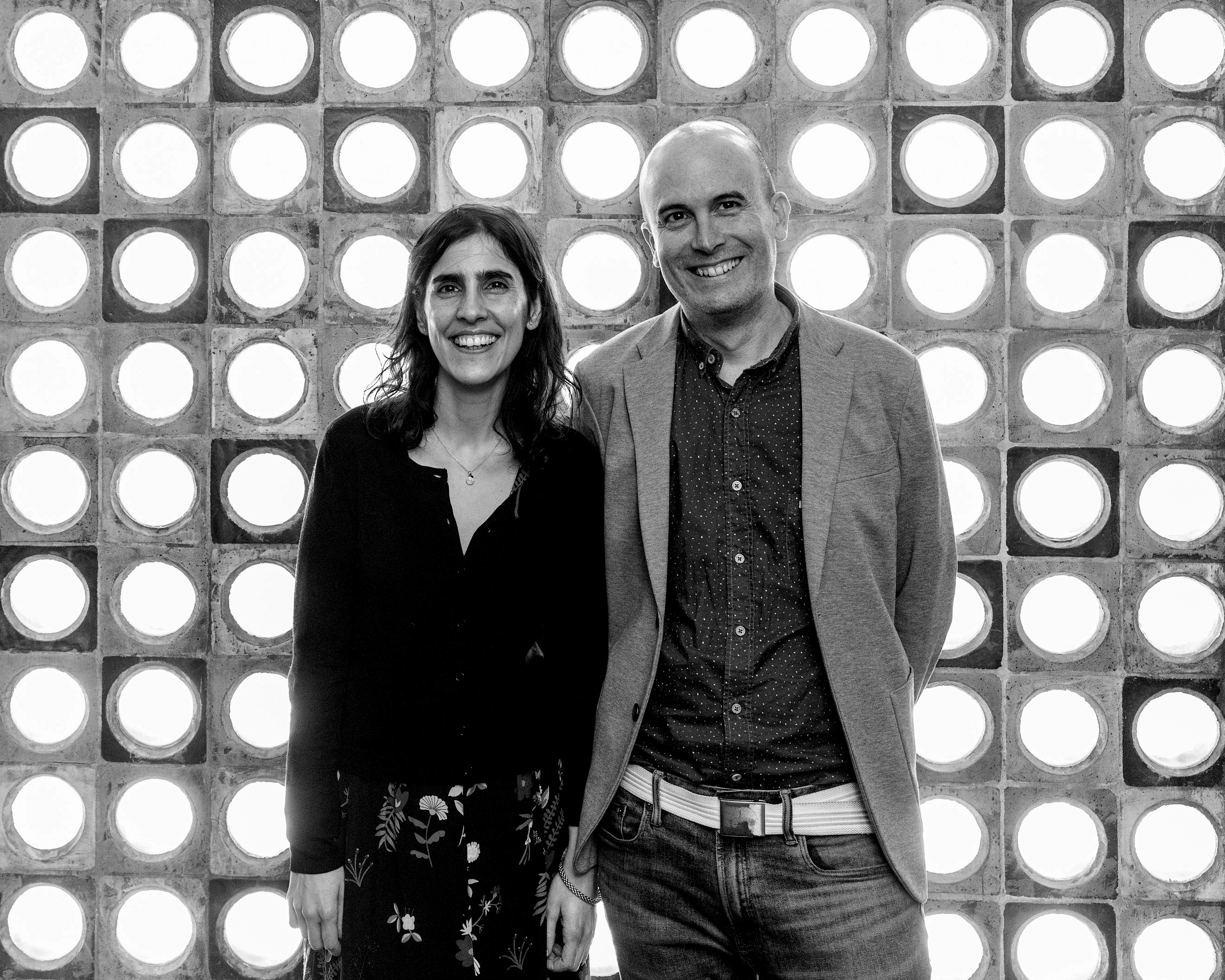
Mar Santamaria and Pablo Martínez founders of 300.000 Km/s. ©Gunnar Knechtel
Maria Arnal is a catalan singer and composer. Arnal bases her background on the oral tradition of the Iberian Peninsula. According to the artist, she wants to approach tradition from the perspective of free culture in the digital age. She has published three albums, with the musical accompaniment of Marcel Bagés on the electric guitar: Remescles, acoples y melismas (EP, 2015), Verbena (EP, 2016) and 45 cerebros y 1 corazón (LP, 2017).
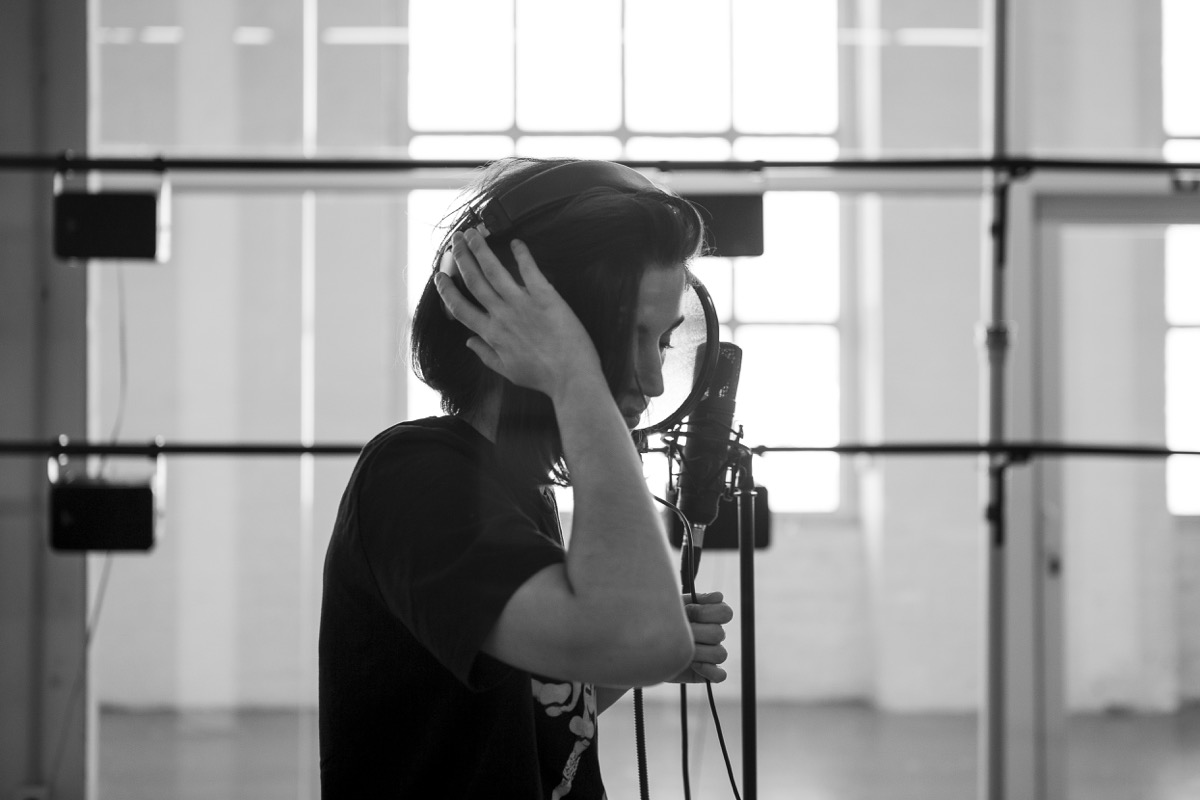
Maria Arnal. © Christiane von Enzberg
CATALONIA IN VENICE- AIR / ÀRIA / AIRE is an investigation into new work methodologies, which allow for a radically different analysis of the cities we live in and help us visualise future opportunities for these environments. The investigation will be explained in a monographic edition of the Quaderns d’Arquitectura i Urbanisme (‘Architecture and Urbanism Workbooks’) journal, published by the Architects’ Association of Catalonia (COAC). The Institut Ramon Llull and the COAC have signed an agreement for the journal, with a national and international circulation of around 8000 copies, to be the new outlet for the scientific dissemination of the content produced by CATALONIA IN VENICE for each edition of the Biennale Architettura.
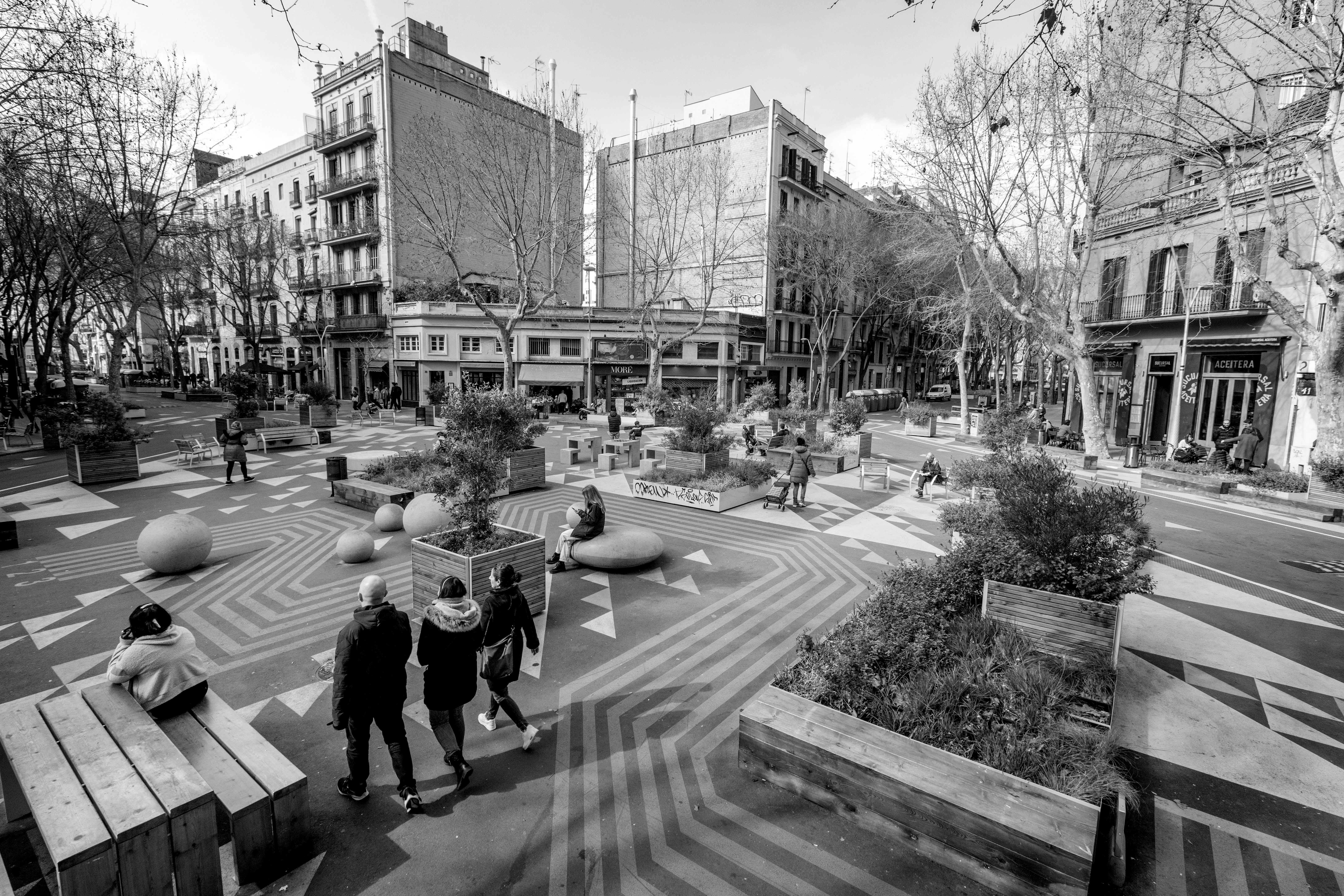
Superblock, Sant Antoni district, Barcelona, 2020. ©Gunnar Knechtel
Address
Cantieri Navali, Fondamenta Quintavalle, Castello 40 (Venècia)
Opening hours
22 May - 31 July, 11 – 19h
1 August - 21 November, 10 – 18h
Mondays closed (except May 24th, setember 6th and november 1st)
In keeping with Article 14 of the Decree of the President of the Council of Ministers of March 2, 2021, the Pavilion will accept bookings of visitors for Saturdays and Sundays. Please contact +39 334 156 9448 air@llull.cat.
Free entrance
We inform you that as of August 6, 2021, in compliance with the Decreto Legge n. 105 of 23 July 2021, every person must present an EU Covid Certificate (Green Pass) to access the exhibition areas of the 17th International Architecture Exhibition at the Giardini and the Arsenale.
Vaporetto
1 and 2 - stop Giardini
Opening
Project
air/aria/aire
Organization and production
Institut Ramon Llull
Curator
Olga Subirós
Architecure and Urban Planning Research
300.000 Km/s
Aria lyrics, music and interpretation
Maria Arnal
Mapping the Air in Venice
Open Systems-UB with 4Sfera, Ideas for Change with IAAC, and the Università Iuav di Venezia
Installation design concept
Olga Subirós
Installation design collaborators
Olga Subirós Studio: Sandra Prat and Monica Barrio
Sound Design
Marc Sardà
Structure Consultant
Ignasi Ribas
Graphic Design - ID, exhibition and website
Subirós Design, Anna Subirós
Audiovisual script
Olga Subirós and 300.000 Km/s
Audiovisual director
Frankie de Leonardis
Audiovisual production
Fake Studio
Exhibition construction team
La Central de Projectes
Transport
Feltrero División Arte
Publication
Quaderns d’Arquitectura i Urbanisme magazine of the Architects Association of Catalonia (Col.legi Oficial d’Arquitectes de Catalunya, COAC)
Guest editor
Olga Subirós
Publication coordination
Anna Tetas
Graphic Design - Publication
Bendita Gloria
Comunication and PR
Pickles PR
We want to thank those who have geneorously provided us with data sets, information and documentation:
IDAEA-CSIC, ISGlobal, Barcelona Supercomputing Center, Lobelia, OpenSystems-Universitat de Barcelona with 4Sfera, Ajuntament de Barcelona, AMB, Generalitat de Catalunya
This website uses its own and third party cookies to offer better browsing. By browsing in it the user agrees to the way we use cookies. Users can prevent cookies from being generated and erase them by using the options on their browser. Blocking cookies may mean that some of this website’s services and options do not work properly.
Cookies are small pieces of data that websites send to browsers and which are stored in users’ devices: computers, mobile telephones, tablets, and so on. Their purpose is to improve the experience of using the website, as these archives make it possible for the website to remember information about the user’s visits, such as preferred options or language. In this way the website personalizes its content and becomes more agile and useful for the user.
By browsing this website users agree to cookies being installed in their equipment that enable us to find out the following information:
Types of cookies
This website uses session, or temporary, cookies and persistent cookies. Session cookies merely keep data while the user is visiting the website. Persistent cookies store the data on the device’s hard drive so that it will be accessible in more than one session.
Depending on the type of data obtained the website can use technical cookies.
These allow users to browse the webpage and use the different options or services it contains. For example, controlling data traffic and communication, identifying the session, entering restricted access areas, requesting enrolment or participation in an event, using security features while browsing and storing content.
Personalization cookies.
These allow users to access the website with some general characteristics that are either already predefined in their hard drive or defined by the user. For example, the language, the type of browser used to access the website, the chosen content design, the geo-location of the device or the regional configuration from where access takes place.
Statistical analysis cookies
These make it possible to monitor and analyse the behaviour of visitors to the website. The information gathered is used to measure a website’s activity and to produce users’ browsing history, making it possible to improve the service.
Third party cookies
Third party cookies that manage and improve the services offered can also be installed. For example, statistics services like Google Analytics.
Managing the cookies in my browser
Users can allow, block or erase the cookies installed in their device by configuring the browsing options.
If the use of cookies in the browser is blocked, some services or functions of the webpage may not be available
This website uses its own and third party cookies to offer better browsing. By browsing in it the user agrees to the way we use cookies. Users can prevent cookies from being generated and erase them by using the options on their browser. Blocking cookies may mean that some of this website’s services and options do not work properly.
Cookies are small pieces of data that websites send to browsers and which are stored in users’ devices: computers, mobile telephones, tablets, and so on. Their purpose is to improve the experience of using the website, as these archives make it possible for the website to remember information about the user’s visits, such as preferred options or language. In this way the website personalizes its content and becomes more agile and useful for the user.
By browsing this website users agree to cookies being installed in their equipment that enable us to find out the following information:
Types of cookies
This website uses session, or temporary, cookies and persistent cookies. Session cookies merely keep data while the user is visiting the website. Persistent cookies store the data on the device’s hard drive so that it will be accessible in more than one session.
Depending on the type of data obtained the website can use technical cookies.
These allow users to browse the webpage and use the different options or services it contains. For example, controlling data traffic and communication, identifying the session, entering restricted access areas, requesting enrolment or participation in an event, using security features while browsing and storing content.
Personalization cookies.
These allow users to access the website with some general characteristics that are either already predefined in their hard drive or defined by the user. For example, the language, the type of browser used to access the website, the chosen content design, the geo-location of the device or the regional configuration from where access takes place.
Statistical analysis cookies
These make it possible to monitor and analyse the behaviour of visitors to the website. The information gathered is used to measure a website’s activity and to produce users’ browsing history, making it possible to improve the service.
Third party cookies
Third party cookies that manage and improve the services offered can also be installed. For example, statistics services like Google Analytics.
Managing the cookies in my browser
Users can allow, block or erase the cookies installed in their device by configuring the browsing options.
If the use of cookies in the browser is blocked, some services or functions of the webpage may not be available